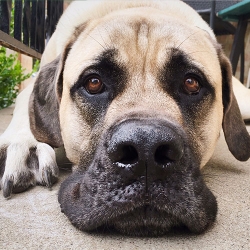 Pain is not an option at Nolan River Animal Hospital! Pets feel pain and discomfort under the same circumstances as people. Animals and people have similar neural pathways for the development, conduction, and modulation of pain. Ensuring that our patients are pain-free is one of our highest priorities. Dr. Brockett and our Veterinary Technicians are continually observing your pet to watch for signs of pain and discomfort, and we are committed to meeting pain with pain management in a timely manner.
Pain is not an option at Nolan River Animal Hospital! Pets feel pain and discomfort under the same circumstances as people. Animals and people have similar neural pathways for the development, conduction, and modulation of pain. Ensuring that our patients are pain-free is one of our highest priorities. Dr. Brockett and our Veterinary Technicians are continually observing your pet to watch for signs of pain and discomfort, and we are committed to meeting pain with pain management in a timely manner.
Untreated pain decreases the quality of life in all patients and prolongs recovery from surgery, injury, or illness. Today, with a better understanding of how pain develops and is perpetuated, pain management has become an essential part of high quality and compassionate patient care in the veterinary field. Our proven pain management protocols are designed to give your pet as much comfort as possible. By first identifying and then managing your pet’s pain, we can help your pet live a higher quality of life, and you as their pet parent will have peace of mind that they are not suffering in silence.
Helping Pets Recover Faster
Providing adequate pain management helps pets recover faster, improving the human-animal bond and the pet’s overall well-being. Unfortunately, our pets are unable to describe their pain and often try to conceal it by instinct. We are trained to recognize signs of pain such as increased heart and respiratory rate, posture changes and vocalization. We use a variety of drugs, techniques, and routes of administration to pre-emptively treat and manage pain.
Whether your pet is experiencing chronic pain from aging, arthritis, or a chronic illness, or experiencing temporary pain from injury or surgery, Nolan River Animal Hospital offers a variety of pet pain management solutions. We often provide pain management as a post-operative follow-up to pet surgery as well as for treatment of certain conditions.
There are numerous signs that your pet can exhibit while experiencing pain:
- Your pet fails to exhibit normal behavior, as evidenced by being more lethargic, with perhaps a decreased appetite or decreased grooming tendencies, especially in cats.
- Your pet may express an abnormal behavior, such as an increase in vocalization, aggression, altered posture and/or facial expression, hiding (cats especially), restlessness, and inappropriate elimination.
- Your pet may have an increase in body tension and reaction to touch, or hyperpathia, is also consistent with an animal experiencing pain in a specific injured body area or region. A distinct change in physiologic parameters such as an elevated heart rate, respiratory rate, blood pressure, and/or pupilary dilation is also indicative of pain.
